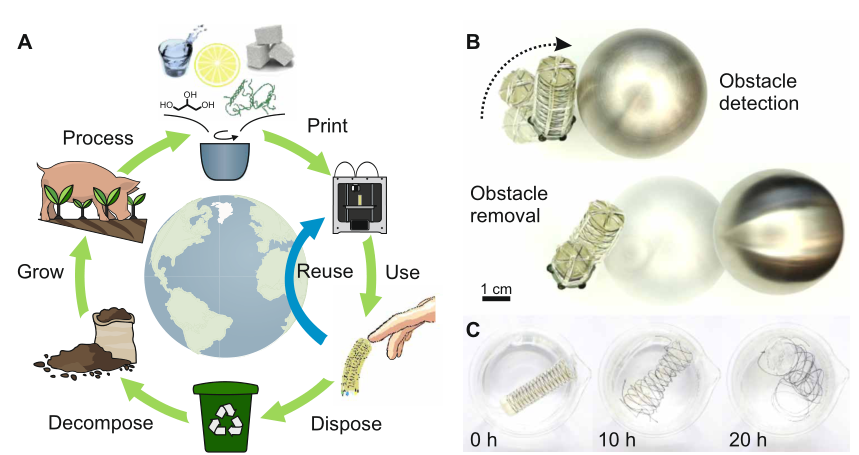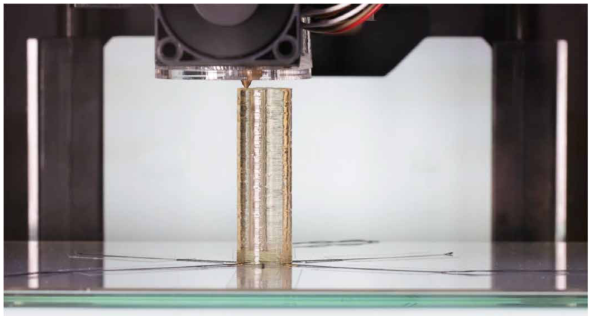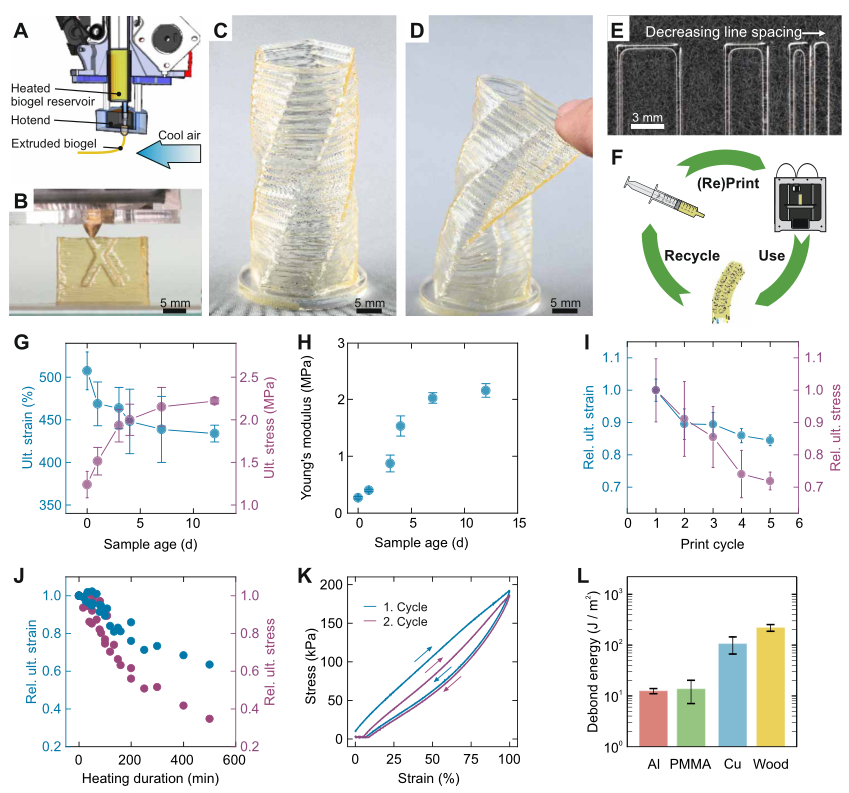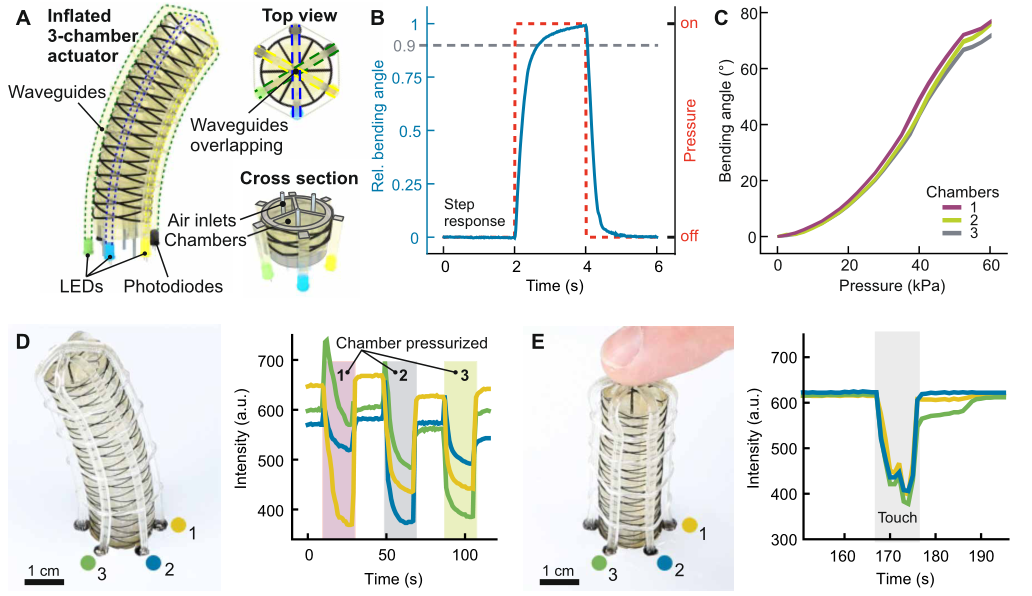Researchers from the Soft Materials Laboratory of the Johann Kepler University Linz University in Austria used fused deposition3D printingwill be completely possible
biology
Degraded gelatin hydrogel (biogel) inks are printed into complex objects with dimensional stability, which can be used in the field of soft robotics.The research has been published in
Science Robotics journal (Impact factor: 23.748)
This study reports a
Fused deposition
of3D printingprocess, which enables the
Fully biodegradable gelatin hydrogel (biogel) ink prints dimensionally stable complex objects
.This process can
Fast, economical and efficient
Prototype elastic soft robots, the gel can
stretched to six times its original length
and the technique has
Zero waste recycling system
. This study fabricated a fast-response (less than one second) pneumatic actuator for omnidirectional motion with a 3D-printed stretchable waveguide (waveguide: a structure used to directionally guide electromagnetic waves) capable of bulk and external perception. With dynamic real-time control, these software devices can automatically detect and clear obstacles. They can be reprinted or treated harmlessly, which has important implications for the sustainable development of soft robotics.




The researchers propose a 3D printed omnidirectional soft actuator made of sustainable biomaterials that enables multidirectional sensing through 3D printed soft optical waveguides. Versatile and high-precision sensors are able to sense the bending state of the actuator and its surrounding objects. This allows the soft robot to autonomously locate obstacles in its vicinity and remove them.
The researchers also noted that the waveguide’s signal output may vary. Depending on the manipulation, it is still necessary to differentiate between different stimuli (eg, bending and touching).
(responsible editor: admin)


0 Comments for “New research on 3D printing: 3D printing of elastic biogels for omnidirectional and extrinsic soft actuators”